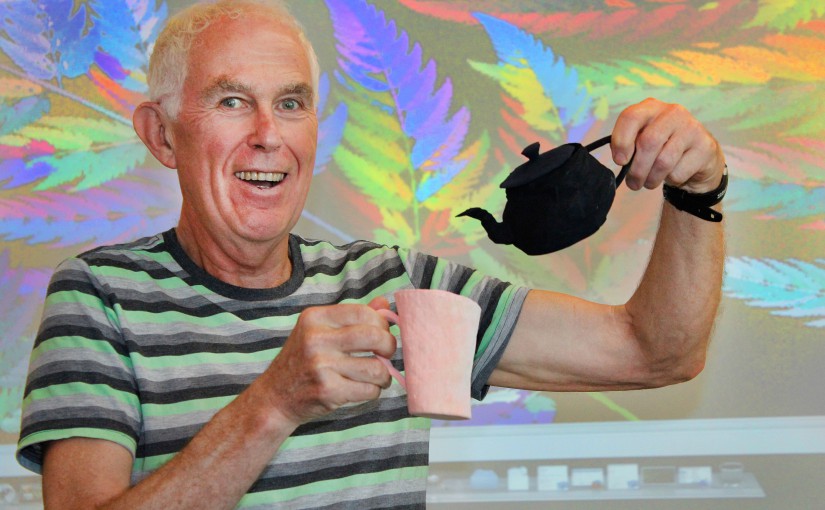An ANU mathematician has developed a new way to uncover simple patterns that might underlie apparently complex systems, such as clouds, cracks in materials or the movement of the stockmarket.
The method, named fractal Fourier analysis, is based on new branch of mathematics called fractal geometry.
The method could help scientists better understand the complicated signals that the body gives out, such as nerve impulses or brain waves.
“It opens up a whole new way of analysing signals,” said Professor Michael Barnsley, who presented his work at the New Directions in Fractal Geometry conference at ANU.
“Fractal Geometry is a new branch of mathematics that describes the world as it is, rather than acting as though it’s made of straight lines and spheres. There are very few straight lines and circles in nature. The shapes you find in nature are rough.”
The new analysis method is closely related to conventional Fourier analysis, which is integral to modern image handling and audio signal processing.
“Fractal Fourier analysis provides a method to break complicated signals up into a set of well understood building blocks, in a similar way to how conventional Fourier analysis breaks signals up into a set of smooth sine waves,” Professor Barnsley said.
Professor Barnsley’s work draws on the work of Karl Weierstrass from the late 19th Century, who discovered a family of mathematical functions that were continuous, but could not be differentiated.
“There are terrific advances to be made by breaking loose from the thrall of continuity and differentiability,” Professor Barnsley said.
“The body is full of repeating branch structures – the breathing system, the blood supply system, the arrangement of skin cells, even cancer is a fractal.”


How could Dr Barnsley join dimension inc when there’s a MAJOR lawsuit going on between TMM,Inc vs Larry Panik Dimension Inc
all history now I think.
I would like more information including computer programs to help create fractals.
Hi Michael
I know its been a long time since your post, but here is a response. Have a look at http://www.frangostudios.com for some ipad and iphone fractal programs. If its an IFS program you want then send another message and I may be able to help.
Very inspiring Prof…I think that fractal is amazing because we live in.
Hello! I am an undergraduate in physics and mathematics. I stumbled upon this after coming across some interesting information!
Please contact me by email when you get the chance. I love fractals and would like to get the chance to exchange theories with you.
Hi Jordan
It’s great to hear from enthusiastic undergrads! Have you seen our other website http://www.frangostudios.com?